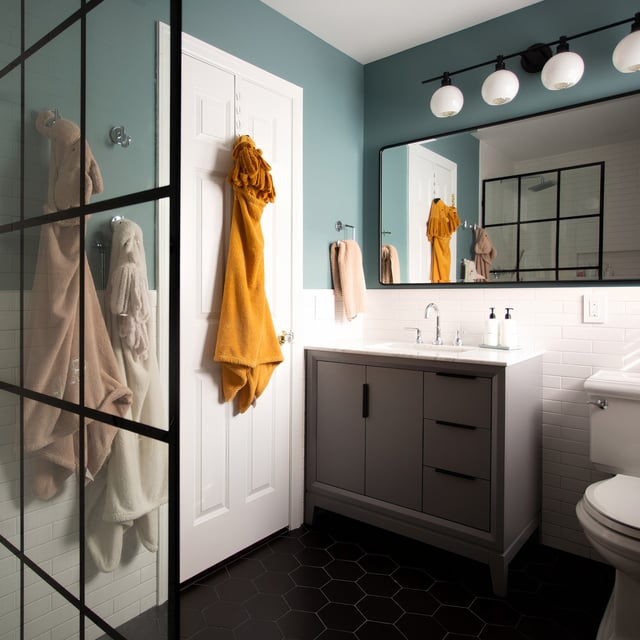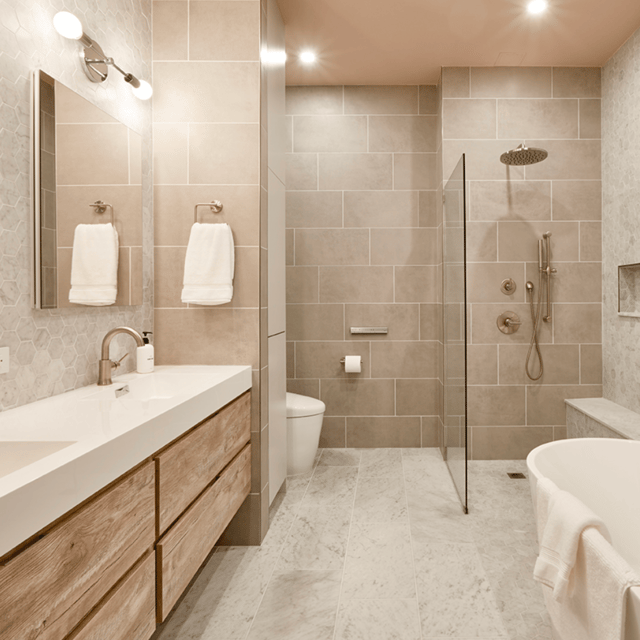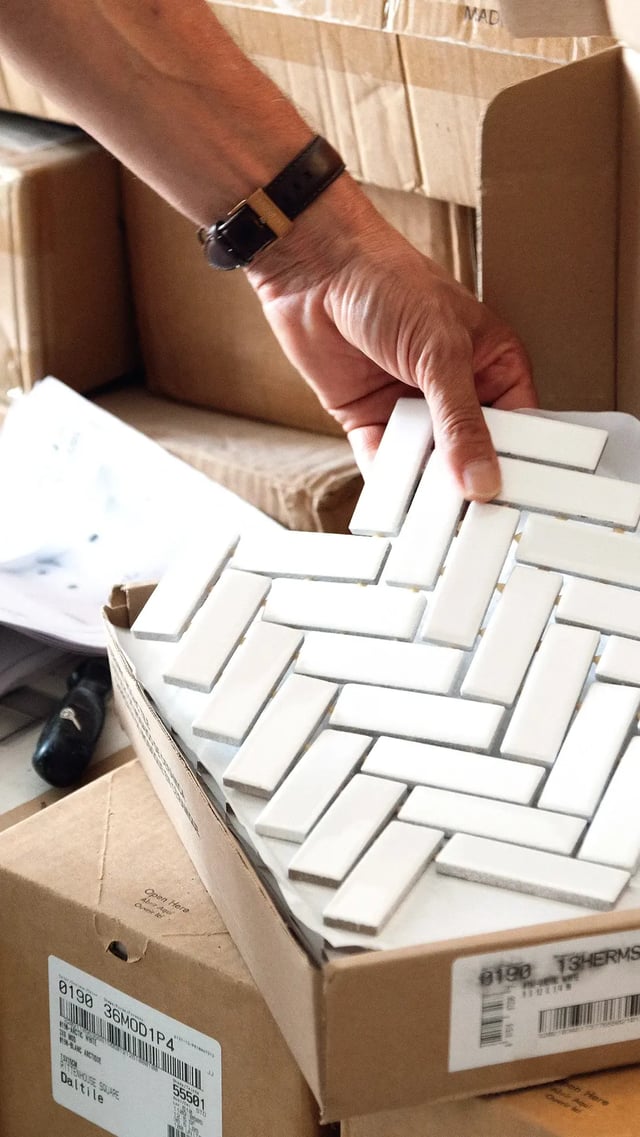
Bathroom
Eco-Friendly Shower & Bathroom Ideas
12.23.2025
Our New Year savings event is here: Get up to $6,500 off your project today (terms apply).


In This Article
Embarking on a bathroom renovation can be both exciting and daunting. As you envision your dream space, it’s crucial to understand the different phases involved and the typical timelines they entail. This guide will walk you through each step of the renovation process—from initial planning and design to demolition and final touches—providing you with essential tips to manage your project efficiently. Whether you’re doing a simple rip and replace or overhauling the entire room, being well-prepared will help you navigate the challenges of remodeling and ensure a smooth, successful transformation of your bathroom.

The planning phase is the foundation of your bathroom renovation project. In this stage, you define your objectives, set a budget, and collect design ideas. Investing adequate time in planning is critical to preempting any issues down the line. The duration of this phase can differ based on the project’s complexity and how quickly decisions are made, but typically, you should allocate at least one week for planning.
After laying the groundwork in the planning stage, the design phase is where your bathroom remodel starts to take shape visually. Here, you'll make key decisions on layout, materials, and fixtures. Working with a designer can help bring your ideas to life, ensuring that the space is not only beautiful but also functional. This stage often involves choosing color schemes, tile patterns, and lighting fixtures, and may require adjustments as you reconcile your vision with practical considerations like plumbing and electrical configurations. Expect to spend around 2–6 weeks in the design phase, which is crucial for finalizing details before any physical work begins, setting the stage for a successful transformation.
Once the initial planning and design phase is complete, the next step is to prepare for construction. This involves obtaining any necessary permits or approvals from local authorities to ensure that your renovation project complies with building codes and regulations. It is important to research and understand the requirements for your specific location, as the process can vary. Additionally, you will need to hire a contractor to assist with the project. During this phase, it is also a good time to gather the necessary materials and supplies to ensure a smooth construction process. Timelines can differ significantly based on material selection, project scope, and the duration of obtaining building approvals. However, on average, the pre-construction phase typically spans between 5 to 12 weeks.
With the necessary approvals in place, the demolition and preparation phase can begin. This stage involves removing any existing fixtures, tiles, and other elements that will be replaced or modified during the renovation. It is important to approach demolition with caution to minimize damage to the surrounding areas. Once the demolition is complete, the space can be prepared for the next steps, such as plumbing and electrical work. This may involve repairing or replacing any damaged or outdated systems to ensure they meet current standards. Typically, the demolition and preparation phase lasts about 1-2 weeks.

The rough-in work phase focuses on the installation of the essential systems and infrastructure that will support the functioning of your bathroom. This includes the plumbing and electrical work, as well as any necessary framing or structural modifications. During this stage, it is important to work closely with professionals to ensure that all the necessary connections and installations are done correctly. This phase sets the foundation for the rest of the renovation and requires careful planning and coordination. Rough-in work generally takes about 2-4 weeks to complete.

Once the rough-in work is complete, it is time to move on to the installation of fixtures and finishes. This phase includes installing items such as the bathtub, shower, toilet, sink, vanity, and any other fixtures or accessories you have selected for your bathroom. It also involves the installation of tiles, flooring, lighting fixtures, and other decorative elements. It is important to work with skilled tradespeople or contractors who have experience in installing these items to ensure a professional and high-quality finish. The installation of fixtures and finishes usually spans 3-5 weeks.

As the renovation nears completion, attention shifts to the final touches phase. This involves adding the finishing touches to your bathroom, such as painting, caulking, and installing hardware and accessories. It is important to pay attention to detail during this stage to achieve a polished and cohesive look. Once the final touches are complete, a thorough review should be conducted to ensure that everything is in working order and meets your expectations. This includes checking for any leaks, testing the functionality of fixtures, and ensuring that all safety measures are in place. The final touches and punch list typically require about 1-2 weeks.

Congratulations! Your bathroom renovation is complete. The final phase involves cleaning up the construction debris and adding accessories and decor to the space. Take the time to thoroughly clean your new bathroom and remove any dust or debris that may have accumulated during the renovation process. Finally, don't forget to enjoy your newly renovated bathroom and take pride in the transformation you have achieved.


Written by Block Renovation

Renovate confidently with Block
Easily compare quotes from top quality contractors, and get peace of mind with warranty & price protections.
Thousands of homeowners have renovated with Block

4.5 Stars (100+)

4.7 Stars (100+)

4.5 Stars (75+)

Bathroom
Eco-Friendly Shower & Bathroom Ideas
12.23.2025

Bathroom
New York City Bathroom Remodels: Planning & Renovation Tips
12.05.2025

Bathroom
Slanted Roof Bathrooms and Shower Design Ideas
11.22.2025

Contractors
50 Most Common Home Renovation Questions (Answered by Experts)
10.28.2025

Bathroom
Choosing Bathroom Fixture Finishes - Inspiration & FAQ
10.22.2025
Renovate confidently